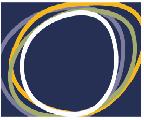The wild frontier – John McDonald
In 1995 John McDonald, then at the National Archives of Canada, wrote a visionary article on the challenges of managing documents in the unstructured electronic office environment, likening it to the ‘wild frontier’ (McDonald, 1995). A decade later he reflected on the frontier of the modern office, in the opening chapter of the first UK book on e-records management, believing it still to be ‘wild’ and saying that “while significant steps have been taken, the path out of the wild frontier remains as elusive for most organisations as it was ten years ago” (McDonald, 2005 p2).
He explores the changes that have occurred in terms of the necessary infrastructure for effective ERM – laws and policies, standards and practices, systems and people, not just technology. McDonald (2005, p.6) believes that organisations do not understand “how the office functions and how it can benefit from advanced tools and techniques for managing work processes” and the associated information and that a main inhibitor to progress is “the lack of understanding managers have of records and records management” (p.7). He suggests how we might accelerate the pace of positive change by focusing on “establishing a vision, enhancing awareness, assigning accountability, designing an architecture, and building capacity” (McDonald, 2005 p.8).
John McDonald’s vision and his concept of accelerating positive change in ERM inspired the development of this project, its nature and scope; with his generous agreement it also gave rise to its title. If you have not read his articles we highly recommend them.
Two other publications also influenced the project - McKemmish et al (2005) and the ICA workbook on managing e-records from an archival perspective (ICA, 2005), which draws on ISO 15489-1 (2001) and their earlier guide.
ICA. (2005). Electronic records: a workbook for archivists. ICA Study 16. ICA. http://www.ica.org/biblio.php?pdocid=285
ISO 15489-1 (2001). Information and documentation - records management. Part 1: General. ISO.
McDonald, J (1995). Managing records in the modern office: taming the wild frontier. Archivaria, 39 (Spring), p. 70-79.
McDonald, J. (2005). The wild frontier ten years on. In: McLeod, J and Hare, CE (Eds). Managing electronic records. Facet, p1-17.
McKemmish, S. et al. (2005). Archives: recordkeeping in society. Charles Sturt University.
Julie McLeod
Project Director



6 comments:
Julie:
I agree with John's assertion that we don't know "how the office functions". I see this time and again in my consulting practice. One reason for this I believe is that people's "expectations" are not being managed effectively.
Many managers do not fully understand what ERM really is and how it can benefit their organization and this is because these managers have expectations that are out of line with what ERM can and perhaps should deliver. Some expect ERM to quietly and quickly solve all of their organizational problems, while others have little or no faith in ERM at all, yet admit that they have a problem that needs to be solved!
There are lots of technical reasons why so many attempts to implement proper ERM strategies and policies go wrong, but if the expectations of those who would ultimately benefit from ERM are not managed appropriately, then all the technology and policies in the world will be for naught. On the other hand, when managers and ERM experts see the same vision, and have basically the same kind of understanding, then the chance of such projects succeeding rises dramatically.
One of the critical tasks of any ERM implementation it to ensure that organizations know what they are getting and how much effort is really needed. ERM cannot be seen as a rapid solution to problems, and in fact, organizations might sometimes find themselves moving a little backwards as they try to adjust to new ways of doing things. However, if management is properly prepared for this, the acceptance of ERM will be better assured.
This is exactly the reason that the majority of EDRM systems fail. The implementation of such systems often seems to be based on the premise that the end user's role in life is to manage records. It is not. Staff have specific business-driven roles to perform, it just so happens that most of them create records as a by-product.
Until we as records managers fully understand the business processes within our organisations and find ways of making the management of records an 'invsible' part of them our impact will always be negligible.
Agreeing with earlier comments I feel the mistake many take is looking at this area from too narrow a perspective, i.e. as a professional records management view of the world. As Steve hints a more holistic approach to information management based around the individual is what is needed. Competition between RM/IM/IT and other professionals is often a key barrier in my experience. Coming together within a sensible and broader information architecture model could be a first step in overcoming this problem. Information design is the key but this requires a multidiscipline approach in my view.
Good for people to know.
Agreed with Steve. Actually, the responsibility of records management falls on all persons within any organization. It includes maintaining properly ordered files, which can be called upon to be produced as part of their day to day job duties.
[url=http://www.freewebs.com/order-amoxicillin/]amoxicillin to buy online
[/url]amoxicillin 500 mg nyquil
buy amoxicillin uk online
amoxicillin get you high
Post a Comment